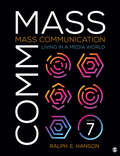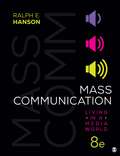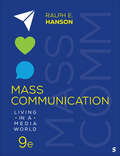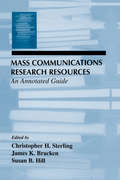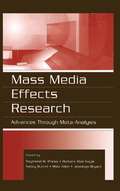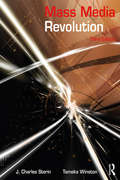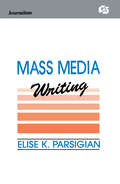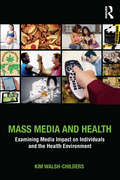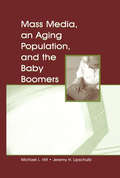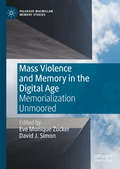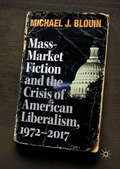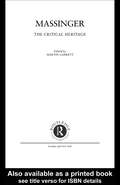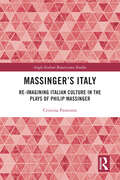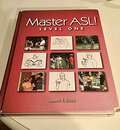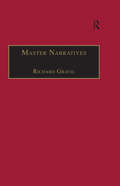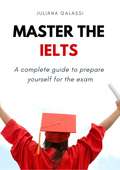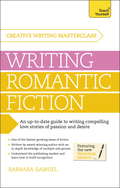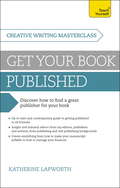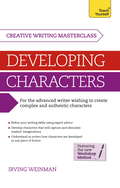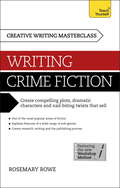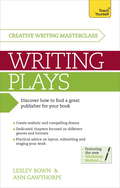- Table View
- List View
Mass Communication: Living in a Media World
by Ralph E. HansonTransform your students into smart, savvy media consumers. A book that students find fun to read and instructors consider educationally valuable, Mass Communication: Living in a Media World provides the media literacy principles and critical thinking skills that students need to become self-aware media consumers. Known for his storytelling approach, bestselling author Ralph E. Hanson uses examples drawn from everyday life to explain the many dimensions of mass media that operate in our society. This newly revised Seventh Edition is packed with contemporary examples and compelling stories that illustrate the latest developments and recent events that are changing the face of media today.
Mass Communication: Living in a Media World
by Ralph E. HansonTransform your students into smart, savvy media consumers. A book that students find fun to read and instructors consider educationally valuable, Mass Communication: Living in a Media World provides the media literacy principles and critical thinking skills that students need to become self-aware media consumers. Known for his storytelling approach, bestselling author Ralph E. Hanson uses examples drawn from everyday life to explain the many dimensions of mass media that operate in our society. This newly revised Seventh Edition is packed with contemporary examples and compelling stories that illustrate the latest developments and recent events that are changing the face of media today.
Mass Communication: Living in a Media World
by Ralph E. HansonThe best-selling Mass Communication: Living in a Media World presents a highly accessible introduction to mass communication that equips students with the critical thinking skills to become savvy media consumers. To help students better retain the material, author Ralph E. Hanson uses a storytelling approach that weaves in examples drawn from everyday life. Readers are encouraged to consider the media industry from the inside out and, in doing so, discover the many dimensions of mass communication that operate in our society. The thoroughly revised Eighth Edition highlights how social and digital media, video games, and the COVID-19 pandemic are changing the face of media. This title is accompanied by a complete teaching and learning package.
Mass Communication: Living in a Media World
by Ralph E. HansonThe best-selling Mass Communication: Living in a Media World presents a highly accessible introduction to mass communication that equips students with the critical thinking skills to become savvy media consumers. To help students better retain the material, author Ralph E. Hanson uses a storytelling approach that weaves in examples drawn from everyday life. Readers are encouraged to consider the media industry from the inside out and, in doing so, discover the many dimensions of mass communication that operate in our society. The thoroughly revised Eighth Edition highlights how social and digital media, video games, and the COVID-19 pandemic are changing the face of media. This title is accompanied by a complete teaching and learning package.
Mass Communication: Living in a Media World
by Ralph E. HansonThe best-selling Mass Communication: Living in a Media World offers an accessible introduction to mass communication, equipping students with the critical thinking skills to become savvy media consumers. Using a storytelling approach, the text weaves in examples drawn from everyday life, making it easier for students to retain the material and connect it to their own media experiences. Readers are encouraged to consider the media industry from the inside out and, in doing so, discover the many dimensions of mass communication that operate in our society. This newly revised Ninth Edition highlights the aftermath of how the media industry and media consumers have evolved since the global pandemic, closely examining the changing the face of media today.
Mass Communication: Living in a Media World
by Ralph E. HansonThe best-selling Mass Communication: Living in a Media World offers an accessible introduction to mass communication, equipping students with the critical thinking skills to become savvy media consumers. Using a storytelling approach, the text weaves in examples drawn from everyday life, making it easier for students to retain the material and connect it to their own media experiences. Readers are encouraged to consider the media industry from the inside out and, in doing so, discover the many dimensions of mass communication that operate in our society. This newly revised Ninth Edition highlights the aftermath of how the media industry and media consumers have evolved since the global pandemic, closely examining the changing the face of media today.
Mass Communications Research Resources: An Annotated Guide (Routledge Communication Series)
by Christopher H. Sterling Susan M. Hill James K. BrackenThis reference book is designed as a road map for researchers who need to find specific information about American mass communication as expeditiously as possible. Taking a topical approach, it integrates publications and organizations into subject-focused chapters for easy user reference. The editors define mass communication to include print journalism and electronic media and the processes by which they communicate messages to their audiences. Included are newspaper, magazine, radio, television, cable, and newer electronic media industries. Within that definition, this volume offers an indexed inventory of more than 1,400 resources on most aspects of American mass communication history, technology, economics, content, audience research, policy, and regulation. The material featured represents the carefully considered judgment of three experts -- two of them librarians -- plus four contributors from different industry venues. The primary focus is on the domestic American print and electronic media industries. Although there is no claim to a complete census of all materials on print journalism and electronic media -- what is available is now too vast for any single guide -- the most important and useful items are here. The emphasis is on material published since 1980, though useful older resources are included as well. Each chapter is designed to stand alone, providing the most important and useful resources of a primary nature -- organizations and documents as well as secondary books and reports. In addition, online resources and internet citations are included where possible.
Mass Media Education in Transition: Preparing for the 21st Century (Routledge Communication Series)
by Thomas DicksonMedia educators have long been debating the nature and purpose of media education. Issues relating to new technologies and the changing state of the media industry are ongoing concerns, but some of the most difficult questions go to the actual structure of media education itself: Is it best represented as an integrated field? Should it merge with other communication subfields, or potentially split into several separate fields? Media practitioners complicate matters further by questioning the necessity for media education at all. The continued consideration of and reaction to these issues will have a significant effect on media-related education and its associated practices. In Mass Media Education in Transition, Thomas Dickson gives careful consideration to the state of media education and its future directions. He provides a history of mass media-related education as well as an overview of the major issues affecting media education at the end of the 20th century. He incorporates the visions of media education leaders as to the possible directions the field may take in the next century and includes in his discussion information that has been previously unknown or not readily available to media educators. This volume provides a broad view of the major issues affecting all aspects of media education: print and broadcast journalism, advertising, public relations, and media studies. It also offers detailed insights as to the possibilities that lie ahead as the field continues to develop--a new professionalism, or a return to a prior vision of media-related education, or possibly something quite different.
Mass Media Effects Research: Advances Through Meta-Analysis (Routledge Communication Ser.)
by Raymond W. Preiss Barbara Mae Gayle Nancy Burrell Mike Allen Jennings BryantThis distinctive collection offers a unique set of meta-analyses covering the breadth of media effects research. Editor Raymond W. Preiss and his colleagues bring together an all-star list of contributors. Organized by theories, outcomes, and mass media campaigns, the chapters included here offer important insights on what current social science re
Mass Media Revolution
by J. Charles Sterin Tameka WinstonNow in its Third Edition, Mass Media Revolution remains a dynamic guide to the world of mass media, enhancing its readers’ development as critical consumers. The text employs a storytelling narrative style and integrated, chapter-specific digital material, providing a seamless learning experience. It features a wealth of expanded content—with particular attention to diversity in the media industry, reality TV, ethics and social media, and the evolution of online journalism. Chapter content, both print and online, is aligned to the ACEJMC national academic standards. Along with student video resources, this text includes an accompanying instructor resource manual and Power Point slides. All supplementary materials can be found at massmediarev.com.
Mass Media Writing (Routledge Communication Series)
by Elise K. ParsigianThis innovative book is the first to identify and describe the systematic process that drives the day-to-day work of writers in the real world of print and broadcast journalism, public relations and advertising. The key to creative problem solution for both simple and complex assignments in media work is engagingly detailed in this thought-provoking guide. Users of this book will learn how to fulfill assignments and write copy that meets an editor's or client's expectations, speaks to the intended audience, stands up to question, and remains in memory. The author skillfully blends tested processes from science and art to equip the student with the tools of self-management and the techniques of disciplined creativity that defend against erroneous judgment. Recognizing the role of problem solving in media and the primacy of critical thinking at all stages of the writing process -- from preparatory measures to final writing -- the author challenges the assumption that discipline and creativity are incompatible partners. That partnership is described in detail, then dramatized with absorbing examples and illustrations drawn from interviews with experienced practitioners in print and broadcast journalism, public relations and advertising. Each chapter is a discovery of how this reliable partnership for solving writing problems in media applies to both anticipated and unexpected communication situations. Making known what media professionals have learned through trial and error on the job, here is a thinking and writing dynamic that students, new hires, and aspiring free-lancers can now acquire before entering the world of print or broadcast journalism, public relations or advertising.
Mass Media and Health: Examining Media Impact on Individuals and the Health Environment
by Kim Walsh-ChildersMass Media and Health: Examining Media Impact on Individuals and the Health Environment covers media health influences from a variety of angles, including the impact on individual and public health, the intentionality of these effects, and the nature of the outcomes. Author Kim Walsh-Childers helps readers understand the influence that mass media has on an individual’s health beliefs and, in turn, their behaviors. She explains how public health policy can be affected, altering the environment in which a community’s members make choices, and discusses the unintentional health effects of mass media, examining them through the strategic lens of news framing and advocacy campaigns. Written for students across a variety of disciplines, Mass Media and Health will serve as primary reading for courses examining the broader view of mass media and health impacts, as well as providing supplemental reading for courses on health communication, public health campaigns, health journalism, and media effects.
Mass Media, An Aging Population, and the Baby Boomers (Routledge Communication Series)
by Jeremy H. Lipschultz Michael L. HiltAs the oldest members of the baby boomer generation head into their retirement years, this demographic shift is having a substantial influence on uses of mass media, as well as the images portrayed in these media. Mass Media, An Aging Population, and the Baby Boomers provides a comprehensive examination of the relationship between media and aging issues, addressing mass media theory and practice as it relates to older Americans.Reviewing current research on communication and gerontology, authors Michael Hilt and Jeremy Lipschultz focus on aging baby boomers and their experiences with television, radio, print media, entertainment, advertising and public relations, along with the Internet and new media. They draw from studies about health and sexuality to understand views of aging, and present a view of older people as important players in the political process. Hilt and Lipschultz conclude the volume by addressing trends and making predictions related to baby boomers and mass media.Providing a timely and insightful examination of the linkage between mass media and aging issues, this volume will prove a valuable resource for scholars and students in media and gerontology. It is intended for use in coursework addressing such topics as mass communication and society, media and aging, media and public opinion, sociology, and social gerontology.
Mass Violence and Memory in the Digital Age: Memorialization Unmoored (Palgrave Macmillan Memory Studies)
by David J. Simon Eve Monique ZuckerThis volume explores the shifting tides of how political violence is memorialized in today's decentralized, digital era. The book enhances our understanding of how the digital turn is changing the ways that we remember, interpret, and memorialize the past. It also raises practical and ethical questions of how we should utilize these tools and study their impacts. Cases covered include memorialization efforts related to the genocides in Rwanda, Cambodia, Europe (the Holocaust), and Armenia; to non-genocidal violence in Haiti, and the Portuguese Colonial War on the African Continent; and of the September 11 attacks on the United States.
Mass-Market Fiction and the Crisis of American Liberalism, 1972–2017
by Michael J. BlouinMass-Market Fiction and the Crisis of American Liberalism, 1972–2017 tracks the transformation of liberal thought in the contemporary United States through the unique lens of the popular paperback. The book focuses on cultural shifts as they appear in works written by some of the most widely-read authors of the last fifty years: the idea of love within a New Economy (Danielle Steel), the role of government in scientific inquiry (Michael Crichton), entangled political alliances and legacies in the aftermath of the 1960s (Tom Clancy), the restructured corporation (John Grisham), and the blurred line between state and personal empowerment (Dean Koontz). To address the current crisis, this book examines how the changed character of American liberalism has been rendered legible for a mass audience.
Massinger: The Critical Heritage
by Martin GarrettMartin Garrett's comprehensive collection presents and explains the history of the critical reception to Massinger's work from the early seventeenth to the late nineteenth century. The volume includes extensive selections from the writings of Pepys, Goldsmith, Coleridge, Hazlitt, Lamb and Swinburne, as well as briefer comments from Scott, Byron and Keats. Responses to Massinger's plays from writers as diverse as Boswell, Mrs Thrale, Dickens and Elizabeth Barrett Browning are discussed in Martin Garrett's introduction, which also includes an account of the plays' original political and theatrical context.
Massinger’s Italy: Re-Imagining Italian Culture in the Plays of Philip Massinger (Anglo-Italian Renaissance Studies)
by Cristina ParavanoMassinger’s Italy: Re-Imagining Italian Culture in the Plays of Philip Massinger offers the first book-length account of the pervasive influence of Italian culture on the canon of Philip Massinger, one of the most successful playwrights of the post-Shakespearean period. This volume explores the relationships between Massinger and Italian literary, dramatic and intellectual culture in the larger context of Anglo-Italian cultural exchanges. The book investigates the influence of Italian culture, considering Massinger’s engagement and appropriation of Italian texts, dramatic and political theories and ideas related to the country and his use of Italy as a setting. Massinger’s Italy offers a fresh and unexpected perspective on the development of Anglo-Italian discourse on the early modern English stage, showing to what extent Massinger contributed to the myth of Italy and to the circulation of Italian culture and shedding light on the complex system of Anglo-Italian interconnections within the corpus of Massinger’s plays as well as with the works of Shakespeare and his contemporaries.
Master Narratives: Tellers and Telling in the English Novel (The Nineteenth Century Series)
by Richard GravilAuthors whose works are discussed in this collaborative book, covering a 'long' nineteenth century, include Sterne, Fielding, Scott, Austen, Mary Shelley, Emily Brontë, Gaskell, Dickens, George Eliot, Conrad, Woolf, and Lawrence. Most of the chapters focus on a single work, among them Tristram Shandy, Wuthering Heights, Bleak House, Middlemarch and Lord Jim, asking why, in the end, does this novel matter, and what does it invite us to 'see'. The contributors examine aspects of narrative technique which are crucial to interpretation, and which bring something new or distinctive into fiction. The introduction asks whether such experimentation may be driven by challenges to society's 'master narratives' - for instance, by a desire to circumvent the reader's ideological defences - and whether, in a radical model of canon-formation, such narrative innovation may be an aspect of canonicity.
Master the IELTS: A complete guide to prepare yourself for the exam
by Juliana GalassiDo you need to take the IELTS to secure your spot in a foreign exchange program, but have no idea where to begin? With this Master the IELTS guide, you will learn a practical and effective method to prepare yourself for the exam, without interrupting your normal routine. It doesn't matter if you have little time before the test or if you aren't at an advanced English level. With this guide you will understand everything about the exam, the right way to prepare, how to know your real English level, and, on top of that, you will have access to various materials to complement your studies. You will also learn how to put together a study schedule that fits into your routine, learn the most common mistakes made by IELTS test takers and how to avoid them, and have access to more than 70 practice tests. Access this Master the IELTS ebook and attain the score you need!
Masterclass: A modern guide to writing compelling love stories of passion and desire
by Barbara SamuelLEARN HOW TO WRITE ROMANTIC FICTION WHICH TAKES THE BREATH AWAY.Do you want to capture the share of the fastest growing market in fiction?Do you have a compelling vision for a passionate love story? Masterclass: Write Romantic Fiction is designed for anyone who wants to write in this genre of popular fiction, whatever their focus. It is the only book available to cover the new and increasingly diverse sub-genres in romance to give insight into how to write really good eroticism, and to show aspiring writers how to gain recognition for their work. Whether contemplating self-publishing or going the traditional route, this is a smart and completely contemporary guide to writing sellable, credible and memorable romance.ABOUT THE SERIESThe Teach Yourself Creative Writing series helps aspiring authors tell their story. Covering a range of genres from science fiction and romantic novels, to illustrated children's books and comedy, this series is packed with advice, exercises and tips for unlocking creativity and improving your writing. And because we know how daunting the blank page can be, we set up the Just Write online community at tyjustwrite, for budding authors and successful writers to connect and share.
Masterclass: Discover how to find a great publisher for your book
by Katherine LapworthLEARN HOW TO FIND A PUBLISHER AND GET YOUR BOOK PUBLISHED.Do you have a completed manuscript ready for submission?Are you looking to successfully publish or self-publish your work?Do you have the level of understanding of the publishing industry?Whether you want to take a traditional route into print or want to digitally self-publish, this book will give you the advice you need on everything from submitting manuscripts to garnering reviews and promoting your work. It covers everything from polishing a final draft to managing your finances, and is also full of case studies, advice and tips from industry insiders from both traditional publishing and successful self-publishing backgrounds.ABOUT THE SERIESThe Teach Yourself Creative Writing series helps aspiring authors tell their story. Covering a range of genres from science fiction and romantic novels, to illustrated children's books and comedy, this series is packed with advice, exercises and tips for unlocking creativity and improving your writing. And because we know how daunting the blank page can be, we set up the Just Write online community at tyjustwrite, for budding authors and successful writers to connect and share.
Masterclass: How to create authentic and compelling characters in your creative writing
by Irving WeinmanLEARN HOW TO WRITE CHARACTERS THAT COME ALIVE ON THE PAGE.A guide to building characterization for writers who want - or need - to go further, this is an ideal course for the person who doesn't have the time or money to attend an advanced fiction writing workshop. It uses a unique interactive Workshop method to engage the writer with their material, editing and redrafting your characters and their contexts to take your work to the next level. With support, advice and inspiration from a leading and respected creative writing tutor, this is an essential book for you if you know you need to polish and hone your manuscript prior to attempting publication. With the help of this highly focused guide you'll create characters with depth and authenticity.ABOUT THE SERIESThe Teach Yourself Creative Writing series helps aspiring authors tell their story. Covering a range of genres from science fiction and romantic novels, to illustrated children's books and comedy, this series is packed with advice, exercises and tips for unlocking creativity and improving your writing. And because we know how daunting the blank page can be, we set up the Just Write online community at tyjustwrite, for budding authors and successful writers to connect and share.
Masterclass: How to create compelling plots, dramatic characters and nail biting twists in crime and detective fiction
by Rosemary RoweDo you have an idea for a gripping crime novel?Would you like to know how to plot your book flawlessly?Do you want to create beautifully crafted characters and nail biting twists?This book is designed for anyone who wants to write an unputdownable crime novel. Whatever your subgenre, whether Scandi-crime or detective 'cosies', this book is full of inspirational advice, acute insights and practical exercises. The first part of the book establishes the rules of writing crime fiction - from convincing characters to the role of research. The book then covers the practical craft of writing and editing, before explaining in detail how to secure a contract and/or self-publish your work. A comprehensive guide for anyone who wants to be the next Val McDermid or Ian Rankin.
Masterclass: How to create realistic and compelling drama and get your work performed
by Lesley Bown Ann Gawthorpe Lesley HudswellWriting Plays is the invaluable and comprehensive guide to anyone who wants to write plays and get them performed. It covers the basics of the theatre, creating and working with characters, writing realistic speech and dialogue, constructing compelling plots and creating a great ending. There are also separate chapters focused on writing for different genres, including pantomimes, musicals, radio and television. And a final section looks at the practicalities of laying out, submitting and staging your play.
